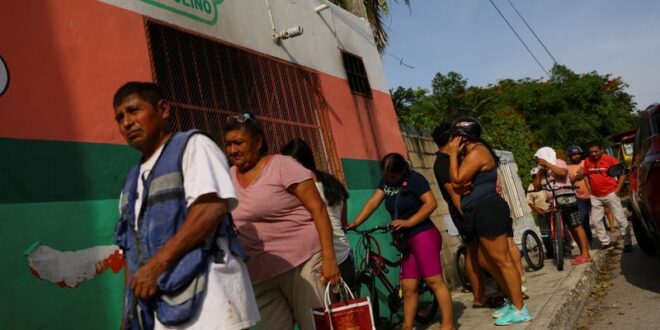GENEVA (Reuters) – Hurricane Beryl caused devastating damage in several Caribbean islands, the International Federation of Red Cross and Red Crescent Societies (IFRC) said on Friday as the Category 3 storm churned towards Mexico’s Yucatan Peninsula.
Storms of a similar magnitude to the unusually fierce early season hurricane are expected to become more common due to the effects of climate change, said Rhea Pierre, the IFRC’s disaster manager for the English and Dutch-speaking Caribbean.
“The severity of damages in the aftermath of Hurricane Beryl are tangible and devastating,” said Pierre, speaking to reporters in Geneva via video link from Port of Spain in Trinidad and Tobago.
“Unfortunately, this new reality of unprecedented hurricanes is becoming the annual and ever present reality for the Caribbean countries who are facing the brunt of climate change,” she said, adding that higher sea surface temperatures caused storms to “strengthen quickly into major hurricanes”.
The Office for the Coordination of Humanitarian Affairs (OCHA) said that humanitarian assessments were ongoing to get a better understanding of the extent of the damage caused by Beryl, which the World Meteorological Organization said was setting the tone for a very dangerous hurricane season.
OCHA spokesperson Vanessa Huguenin said partners in Grenada had reported extreme damage to the islands of Carriacou and Petite Martinique, where 70% and 97% of buildings were damaged, respectively.
In Saint Vincent and the Grenadines, 90% of homes on Union Island were affected, while nearly all buildings on the island of Canouan sustained damage, Huguenin said.
“We are only at the beginning of the hurricane season. We still have a staggering five months to go,” Pierre said.
(Reporting by Gabrielle Tétrault-Farber; Editing by Helen Popper)
 BeritaKini.biz Berita Viral Terkini di Malaysia
BeritaKini.biz Berita Viral Terkini di Malaysia





